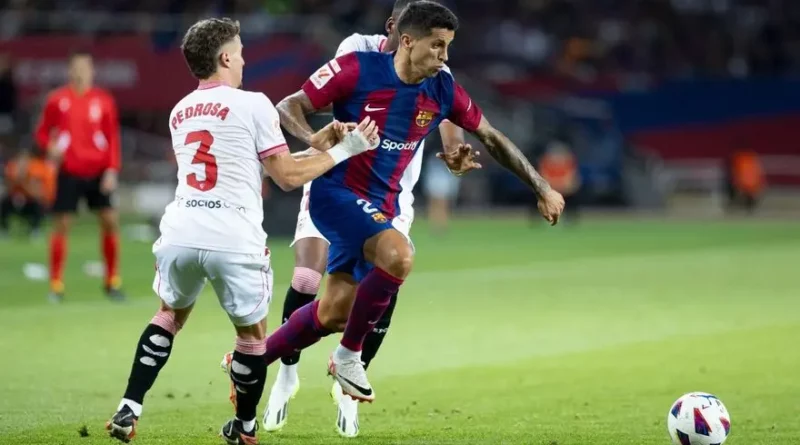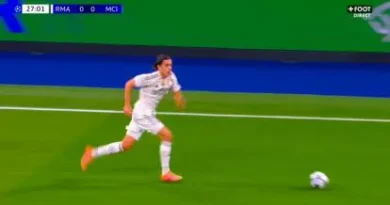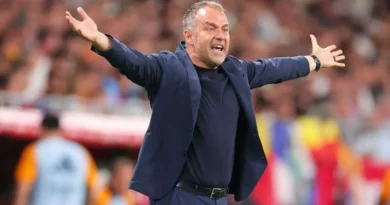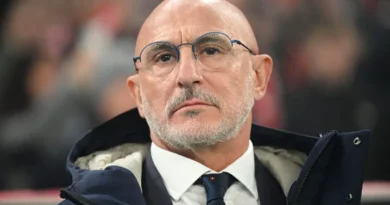Barça and Madrid prepare for dramatic El Clásico at Montjuïc
Few sporting spectacles stir the soul like El Clásico. The clash between Barcelona and Real Madrid is not just a linear chapter of La Liga; it is a swirling narrative of legacy, grit, and emotion that perpetually redefines European football’s meaning. As anticipation for the next installment at Montjuïc crests, storylines on and off the pitch promise yet another unforgettable encounter.
The build-up laced with comebacks and creativity
Rarely has a week ahead of El Clásico been so riddled with both uncertainty and spectacle. Barcelona walk into the showdown with their squad bruised by a spate of injuries, their lineup in flux until the very last moment. Yet, adversity has never cowed this club. Instead, it has called forth resilience in its purest form—a trait reflected in the drumbeat of optimism across team headquarters.
The breath of fresh air comes with the return of Robert Lewandowski and Raphinha to the first team. Their road to recovery has been nothing short of dramatic. Lewandowski’s early return from a right ankle sprain—initially ruled out for a longer spell—represents the fighting mentality embodied by Barça’s veterans. Raphinha, too, is set for action, closing his chapter in the medical room after a challenging biceps femoris injury sustained against Sevilla. Both are likely to play, their minutes perhaps restricted to the bench, but their presence alone marks a turn in fortunes for Xavi’s attack.
The squad also welcomes back Jules Koundé, his versatility and command in defense a timely injection as the Catalans seek to contain Madrid’s restless front line. The anxious wait over Joao Felix’s fitness, after an overload led to his early exit versus Shakhtar Donetsk, was ended by the man himself, who reassured supporters that he would be ready for El Clásico. Gavi’s return from suspension further bolsters the midfield, offering both dynamism and a physical edge in these fevered contests.
Barça’s absentees and the puzzle left behind
No story is complete without the shadows it throws. Missing from Xavi’s plans will be three pivotal players: Pedri, Frenkie de Jong, and Sergi Roberto. De Jong is on track with his recovery but hasn’t trained fully with the group, still nursing the ankle injury suffered against Celta. The Dutchman’s vision and control will be sorely missed. For Pedri, the setback is more dispiriting. Sidelined since the Villarreal trip, he remains under strict protection due to recurring thigh issues—a pragmatic call by club and medical staff, prioritizing long-term fitness over short-term return. Sergi Roberto, another leader, also sits out.
Innovation in tactics and the Cancelo question
Innovation is etched into any tactical preparation for a match of this magnitude. Xavi, aware that the traditional playbook rarely suffices in El Clásico, has experimented with the positioning of Joao Cancelo. His adaptable qualities unlock a new dynamic: on defense, Araujo is expected to shackle Vinicius on the right, freeing Cancelo to slide centrally. As attacks build, Cancelo can take up his familiar role out wide but then drop into central midfield during transitions—blurring lines, adding bodies where Real Madrid threaten most, especially given the absence of a classic number nine for Los Blancos.
It’s a chess move meant to nullify both Vinicius and Jude Bellingham, the latter increasingly dangerous with his surges from midfield. With Oriol Romeu possibly omitted from the starting eleven, Ilkay Gündogan could anchor the midfield, aided by Cancelo, Gavi, and Fermín. It is risk, but one born out of necessity and belief in Barça’s technical superiority.
The young and the bold: Guiu’s fairytale debut
Just days before the grand encounter, 17-year-old Marc Guiu wrote his own chapter in Barcelona folklore. On debut, Guiu netted the decisive goal against Athletic Club at the Olympic Stadium, just 23 seconds after entering the pitch. It was a moment sparkling with romance, a testament to the club’s ethos of nurturing youth and trusting them on the biggest stages. Guiu’s strike not only delivered three essential points but also propelled Barcelona within a single point of Real Madrid and Girona—tightening the title race and stoking anticipation for El Clásico.
That victory, achieved in the absence of Lewandowski, De Jong, Pedri, Koundé, and Raphinha, underscored the squad’s depth and the spirit coursing through La Masia graduates and rising stars alike. Even when attacking returns were scant, players like Joao Felix, Fermín López, Ferran Torres, and Lamine Yamal showed spark, while Ter Stegen’s command at the back, including key stops against the Williams brothers, anchored the win.
Branding, passion, and the Rolling Stones
Beyond tactics and team sheets, this particular El Clásico arrives with a flourish of rock and roll. Continuing their innovative partnership with Spotify, Barcelona revealed that the unmistakable Rolling Stones tongue-and-lips logo would adorn both men’s and women’s shirts for the two Clásicos. Mick Jagger, Keith Richards, and Ronnie Wood’s iconic symbol will cut straight across the Blaugrana, offering a cultural echo that transcends the sport. The timing is apt—the legendary band unveil their new album ‘Hackney Diamonds’ days before the men’s clash, deepening the narrative brew before the ball is even kicked.




